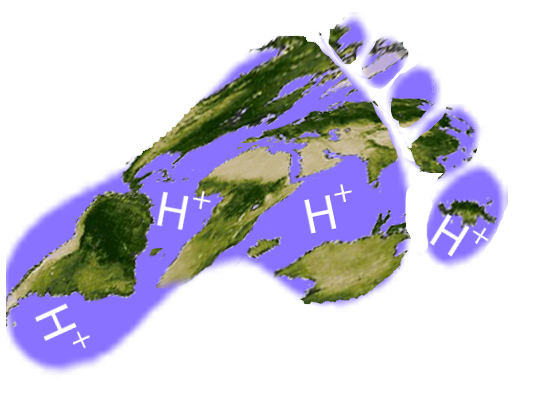
In addition to the famous impacts of atmospheric carbon on global warming, there is an equally worrisome effect of carbon dioxide on the oceans: ocean acidification (or OA for short). Here at I2SEA we have a series of resources about OA, including Our Acidifying Ocean, which is an introductory activity and virtual lab (note: now mobile compatible!).
A student suggested that we start a conversation topic about OA, and here it is! Have you heard about Ocean Acidification? If so, are you worried about it? How do you think we can best raise awareness about it among your fellow students and the general public? Have you seen particularly good links or films about OA that you would like to share? What are you doing to address the problem?
Ocean Acidification >
How Ice melt affects sea level rise.

Ice is increasing the sea level at an alarming rate. Both the International Panel on Climate Change (IPCC) and the US National Climate Assessment say that ice loss was the largest contributor to sea-level rise during the past few decades. They also say that it will continue to be the largest for the next century. The biggest way ice melts is through sea ice, when the ice gets warm it melts and that raises the sea levels. Another way ice melts is through land ice, land ice melts on land and the water travels to the oceans or streams.

El deshielo y el aumento del nivel del mar son sin duda preocupantes y tienen múltiples efectos en nuestros ecosistemas. Uno de los aspectos impactantes es cómo estos fenómenos pueden influir en los sistemas fluviales alrededor del mundo. Por ejemplo, aunque no es un resultado directo del deshielo, es interesante considerar cómo algunos ríos han sido históricamente alimentados y afectados por los glaciares y otras fuentes de agua dulce. Tomando como referencia el Río Amazonas o el Río Nilo, ambos forman parte de los ríos más largos del mundo y han sido vitales para las comunidades a lo largo de la historia. Si te interesa saber más sobre estos impresionantes sistemas fluviales, este artículo ofrece una visión detallada sobre los ríos más largos del planeta y su significado geográfico y cultural.

I agree with what you said, but I would like to add on an emphasis on why ice is rapidly melting at such an alarming rate in the first place. As I'm sure you all know, climate change is the result of increased amounts of greenhouse gases in the atmosphere, which reabsorb the sun's heat when it tries to leave Earth. You may also have known that over the last few decades, specifically the industrial revolution and beyond, greenhouse gases such as carbon dioxide has been released into the atmosphere at faster rate than ever. But what you may not have known is but according to Columbia Climate School, only 0.04% of our atmosphere is made up of Carbon Dioxide. Even this small percentage is enough to drastic changes in our temperature and weather patterns, one of which you mentioned, is the melting of ice, and this includes places like Antarctica. As much as increased sea levels is a problem from people and things that live near shores, there are unfortunately, there are other, stronger ways climate change harms our Earth. Not only is sea level rising, but ocean acification, which is the change in pH of sea water, which harms and kills ecosystems. This is resulting in less food and loss of species. I believe that climate change affects everyone's daily lives and their lifestyles, and that the effects of climate change are not all talked about enough.





